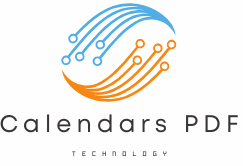In today’s fast-paced business environment, manually processing funds can be time-consuming and error-prone. Financial obligations get more complicated as a business expands. From tracking expenses and generating invoices to reconciling bank statements and preparing tax returns, accounting tasks can quickly become daunting. Automation simplifies these tasks with the help of intelligent software. Automating accounting tasks saves time, improves accuracy, and allows business owners to focus on growth and decision-making.
Understand the Benefits of Accounting Automation
Organizations of all sizes can benefit from accounting automation. The quickest benefit is that you spend less time on repetitive tasks. Software handles much of the data entry and verification in automated accounting. Automation reduces human errors, such as miscalculations and missed transactions, that can lead to financial imbalances. Automated accounting software also provides real-time financial data that helps organizations understand cash flow, expenses, and profitability. Make decisions faster and smarter.
Choosing Automated Accounting Software
There are many automated accounting tools available. The best one depends on the size of your business, the industry, and your needs. Many small businesses use cloud-based accounting software for automated invoicing, bank reconciliation, and expense tracking. Larger businesses may need advanced software that integrates with payroll, inventory management, and CRM. When choosing accounting software, consider ease of use, integration options, customer service, and affordability. Easy-to-use tools save you time and worry.
Invoicing and Payment Automation
You can easily automate accounting processes like invoicing. Automation solutions can automatically send invoices to customers based on events like schedules or sales. The technology can also send reminders for overdue payments, reducing the time it takes to reach the recipient. Adding a payment gateway to your accounting software allows customers to pay directly through their invoices. Payment is then faster and easier. The process saves time and improves cash flow by eliminating delays in collecting payments.
Simplify Receipt and Expense Tracking
Tracking business expenses is necessary for accurate financial records and tax deductions. Automated technology can categorize and record business credit card and bank account transactions in real time. Certain software enables employees to attach receipt photos to transactions directly through mobile apps. This feature eliminates manual data entry and expense evasion. Businesses can stay organized and accountable year-round with digital receipt storage and real-time expense reporting.
Simplify Bank Reconciliation with Automation
Bank reconciliation ensures that accounting records match bank balances. Doing these tasks manually can be tiring, especially if your organization has a lot of transactions. Automating bank transactions in accounting software and linking them to journal entries streamlines the process. Software can surface discrepancies in assessments, making it easier to identify and resolve issues. Regular reconciliation using automated technology can ensure accounting accuracy and reduce fraud.
Automated Payroll Management
One of the most important and difficult tasks in accounting is payroll. Payroll errors can lead to employee dissatisfaction and legal issues. Automated payroll ensures timely and accurate payments. Payroll software calculates wages, taxes, and benefits based on standards. It can also generate payroll, file taxes, and track payments. Businesses can reduce errors and comply with labor laws by eliminating manual entry. Automated payroll simplifies administration, especially as your team grows.
Generating Financial Reports Automatically
Financial reporting is necessary to gain insight into business performance and make strategic decisions. Manually preparing balance sheets, income statements, and cash flow reports can be time-consuming and cause delays. Using real-time data, automation technology can generate these reports instantly. With customizable dashboards and scheduled reports, most accounting software allows business owners and managers to always have access to the latest financial information. Automated reporting helps decision-makers adapt to changes in the business and plan for the future.
Improve Tax Filing and Compliance
Businesses, especially those that don’t maintain structured records, dread tax season. Automated accounting solutions accurately record and organize financial data and simplify tax filing. Some solutions offer tax filing or connect to tax programs to simplify the process. By maintaining reliable records, businesses can find deductions, reduce their tax bill, and avoid penalties for late or incorrect filings. Automation turns regulatory compliance from a rushed process to a year-round process.
Connect Automation to Business Systems
Integrating accounting tools with other business systems can help you get the most out of accounting automation. Many software platforms integrate with point-of-sale systems, inventory systems, e-commerce systems, and CRM systems. Departmental consolidation eliminates duplicate data entry and streamlines data flows. Your accounting software can automatically record sales from your online store, update your inventory, and email invoices to your customers. This comprehensive strategy improves productivity and provides clarity to your business operations.
Train your Team on Effective Automation Tools
Training is essential for successfully implementing automation tools in your organization. Accountants, billing clerks, and payroll administrators need to know how to use the new software. Most accounting software vendors offer user guides, tutorials, and training. Training can help eliminate misunderstandings, build trust, and help your team adopt automation solutions. To ensure consistency and accuracy in your accounting processes, establish clear procedures for using your software.
Conclusion
Automating accounting processes is one of the best ways to increase efficiency, eliminate errors, and save time. With the right tools and strategies, you can automate invoicing, payroll, expense tracking, and tax filing. This capability allows business owners and their teams to focus on growth and innovation instead of administrative responsibilities. As automation technology advances, these solutions will simplify financial management and give you a competitive edge.
FAQs
1. Why should my business automate accounting?
Automation saves time, reduces errors, improves accuracy, and provides real-time financial information for strategic decision-making.
2. Is accounting automation useful for small businesses?
Yes, there are many small business automation systems with user-friendly interfaces and low prices.
3. Will accounting software replace accountants?
Software can do many things, but it cannot replace professional advisors when it comes to complex financial planning and regulatory compliance.
4. How to choose an accounting automation tool
Consider your business size, budget, features, integrations, and usability. Many tools offer free trials to help you decide.
5. Is the transition from manual to automated accounting difficult?
Most software offers step-by-step installation and support. With training and planning, this step can be easy and cost-effective.




